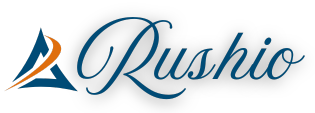In today’s rapidly evolving digital landscape, Human Resources (HR) departments are increasingly tasked with navigating the complexities of managing internet usage within the workplace. As organizations shift to digital workspaces, ethical internet usage monitoring has become a vital component of transforming HR operations. This transformation balances productivity, security, and employee privacy—ensuring a respectful, transparent, and efficient work environment.
The Rise of Digital Workspaces and Its Impact on HR
With the rise of remote work and digital collaboration tools, employees now spend a significant portion of their workday online. While this shift enhances flexibility and accessibility, it also introduces challenges related to internet usage monitoring. HR teams are responsible for setting guidelines that maintain productivity without infringing on personal privacy.
Why Ethical Internet Usage Monitoring Matters
Monitoring internet usage at work is no longer just about preventing misuse or reducing distractions—it’s about fostering a culture of trust and responsibility. Ethical internet usage monitoring ensures that employees are aware of monitoring policies, how data is collected, and how it is used.
For HR professionals looking to implement or improve monitoring systems, understanding the ethical implications is crucial. Click here to explore best practices for ethical internet monitoring that respect employee rights while safeguarding company interests.
Key Principles for Ethical Monitoring in HR
To transform HR operations effectively, organizations should adhere to the following principles:
- Transparency: Clearly communicate monitoring policies and objectives to employees.
- Consent: Obtain informed consent regarding what data is collected and how it will be used.
- Purpose Limitation: Use data strictly for intended HR purposes such as enhancing security or improving productivity.
- Data Security: Ensure robust measures to protect collected information from unauthorized access.
Implementing these principles helps HR teams create a balanced approach that supports both operational goals and employee dignity.
Tools and Technologies Shaping the Future
Modern HR tech solutions offer advanced tools for ethical internet usage monitoring, including AI-driven analytics, real-time alerts, and customizable policy enforcement. These technologies help HR departments proactively address issues such as data breaches, cyber threats, and unproductive behaviors without overstepping ethical boundaries.
For companies wanting to stay ahead, click here to discover innovative software that empowers HR teams to transform internet usage monitoring responsibly and effectively.
Conclusion: Embracing Ethical Internet Usage Monitoring in HR
Transforming HR operations in the age of digital workspaces requires a thoughtful approach to internet usage monitoring. By prioritizing ethical considerations, organizations can enhance productivity, protect sensitive data, and foster a positive workplace culture.
If you want to learn more about integrating ethical internet usage monitoring into your HR practices, click here for additional insights and resources.



